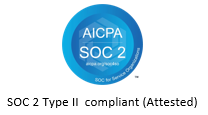The National Stock Exchange (NSE) has officially launched ESG (Environmental, Social, and Governance) ratings for listed companies through its subsidiary, NSE Sustainability Ratings and Analytics Ltd. This marks a pivotal development in India’s corporate landscape, providing, for the first time, standardized and transparent ESG performance scores for all NSE-listed companies.
Before, India’s ESG ratings landscape had following ERPs-
-
- SEBI-registered agencies like ICRA ESG Ratings Limited
- Independent research firms such as Stakeholders Empowerment Services (SES)
- Global providers like S&P Global, Moody’s and MSCI
Why the Launch Matters?
-
Investor Confidence and Transparency:
The new ESG ratings offer investors and stakeholders robust, unbiased insights into companies’ sustainability practices, policies, and disclosures.
-
Alignment with Global Standards:
NSE Sustainability’s methodology is aligned with both national and international ESG standards and best practices, positioning Indian markets alongside global sustainability benchmarks.
-
Driving Accountability and Improvement:
By providing detailed scorecards that highlight strengths and areas for improvement, the ratings encourage companies to proactively enhance their ESG performance, making sustainability a measurable and actionable metric rather than a mere aspiration.
-
Supporting Regulatory Oversight:
The initiative supports regulators and policymakers in tracking and guiding corporate sustainability transitions, especially as frameworks like BRSR gain prominence in India.
How the Ratings Work
-
Comprehensive Evaluation:
The ESG ratings are based on a thorough evaluation of publicly disclosed data, assessing companies across key ESG pillars- a transparent, data-driven, and materiality-based methodology.
-
Benchmarking and Comparability:
Companies are assessed and benchmarked across relevant sectors, with the methodology designed to ensure objectivity and comparability, regardless of company size or industry.
-
Regulatory Backing:
NSE Sustainability is registered with SEBI as a Category I ESG Rating Provider, ensuring regulatory oversight and credibility for its ratings.
Impact on Indian Markets
-
Influence on Investment and Corporate Value:
Empirical research shows that higher ESG ratings are associated with better financial performance, reduced risk, and greater firm value, making these ratings a critical factor for both equity and debt investors.
-
Recognition of Leaders:
Companies like Adani Green Energy Ltd (AGEL) have already been recognized for their strong ESG performance, ranking highest in the utilities/power sector with a notable ESG score, reflecting mature sustainability practices and robust governance.
As ESG considerations move from the periphery to the core of investment and business strategies, this initiative positions India firmly on the global map of responsible finance and governance.
For more information-
https://www.nse-esgrating.com/














